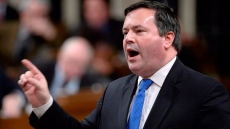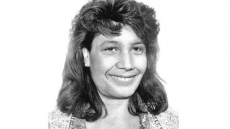OTTAWA — Indian Prime Minister Narendra Modi began the first full day of his visit to Canada by signing a deal to buy more than 3,000 tonnes of Saskatchewan uranium over the next five years to fuel his country's power reactors.
But Modi and Prime Minister Stephen Harper agreed Wednesday the deal is just a first step towards deepening economic relations, and that the relationship between the two countries hasn't yet lived up to its potential.
"Canada is a major Asia-Pacific power and should play a more active role, including in regional institutions," Modi said, standing next to Harper.
Harper said he agreed: "It's not where we want it to be, but it is growing."
Saskatchewan Premier Brad Wall, who was on hand for the announcement, said the deal, estimated to be worth hundreds of millions of follars, would be a boon for his province.
"For an employer of 4,000 people in the province — 45 per cent of them First Nations and Metis — it's a great day for Saskatchewan."
The contract with Cameco Corp. (TSX:CCO) is one of a number of agreements that were announced Wednesday, after Harper welcomed Modi to Parliament Hill amid full military honours, including a 19-gun salute.
The deals include pledges to co-operate in the areas of civil aviation, railway transportation and education and skills development, as well as space, social security and maternal, newborn and child health.
"Canada is ready to deepen co-operation with India in science, education, defence and space technology," Harper said, Modi standing alongside.

Modi praised Harper for improving relations between the two countries, saying they had drifted for a while, but are now back on track.
"I am conscious of the significance of this visit in the history of our relations," he said. "I have come at a time when the importance of this relationship for our two countries has never been stronger.
"Canada has the potential to be a key partner in every area of India's national development strategy: energy and infrastructure, manufacturing and skills, smart cities and agro-industry and research and education."
Modi began the day by meeting Gov. Gen. David Johnston at Rideau Hall before a full honour guard and the din of howitzer fire greeted him in the shadow of the Centre Block, where Harper ushered him in for a face-to-face meeting.
Handfuls of supporters chanted Modi's name as he arrived on the Hill.
"He's a rock star," said Ravi Desai, an international student and IT worker from India who lives in Ottawa.
"He's putting aside a lot of traditional things that other governments used to do and he's focusing on technology, and that's what (the youth of India) need," he said.
Modi's critics, however, view him as an extremist Hindu nationalist with blood on his hands from his time as chief minister of Gujarat state.

In a Toronto courtroom Wednesday, Sikh advocacy groups tried to launch a private prosecution of Modi, alleging his "acts and omissions" resulted in a massacre of Muslims in his state in 2002.
Part of the Criminal Code allows for the prosecution of individuals who are accused of acts of torture abroad while they are in Canada.
The groups' lawyer, Marlys Edwardh, said in a statement there were reasonable and probable grounds to believe that Modi engaged in the crimes. "Only by taking this step will Canada's commitment to ending impunity for torture and genocide be realized."
The attorney general last week decided against taking any action.
Following their talks, the two leaders were to travel to Toronto, where Modi is scheduled to address members of the city's Indian diaspora. Harper will also accompany him to Vancouver, with no fewer than 16 fellow Conservatives scheduled to appear with them at various events.
Modi's trip is the first bilateral visit to Canada by an Indian prime minister since Indira Gandhi was hosted in 1973 by then-prime minister Pierre Trudeau.





